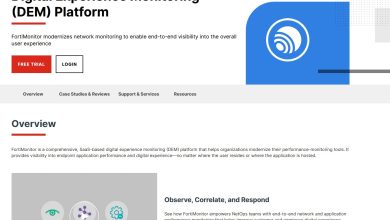
More and more people nowadays are taking advantage of the internet to make a second income from their hobbies, perhaps even to sell products online as their primary job. For those people thinking of taking up the challenge, there’s a lot to think about, and a fair few precautionary measures to consider.
Depending on what you produce will obviously dictate the shipping fulfilment of whatever you have to sell. Many ecommerce proprietors sell crafted ‘hobby’ items like stuffed toys or clothing and collectibles. Clearly, in these cases you’ll need to physically ship these goods using a courier such as UPS or, in the UK, maybe Royal Mail Parcelforce.
But where things become a bit more complex is when offering to sell things digitally and / or physically. For example, some photographers selling their high-quality work can either print a photograph, say 12 x 16 inches (A3) on high quality cotton-based silk-finish paper, roll it into a poster tube and ship it to the customer that way. The customer then obtains a frame and hangs the work as it is intended. Or the photographer can offer the image framed in quality wood moulding with non-reflective glass, swathe the signed artwork in acres of bubble-wrap, then post the item and hope for the best that some gorilla-like employee in a warehouse somewhere doesn’t interpret the label ‘fragile’ as meaning ‘throw underarm’!
The business ‘merry-go-round’
Thirdly, the photographer could send a high-resolution digital file by email or a transfer medium like Dropbox, then the customer can print the image for themselves at any desired size. Clearly, differing price points will apply to the various fulfilment options available.
But whether you’re selling physical or digital items, two things remain equally important – online security so that your ecommerce website doesn’t get hacked, and data protection for handling your customers’ sensitive details. One of the easiest ways to deal with the security aspects of your new online business is to use a virtual private network (VPN) allied with renting a pool of rotating residential proxies. Don’t worry, a rotating residential proxy is nothing to do with taking a fairground ride or turning up somewhere to vote in an election; it’s simply the use of a selection of internet protocol (IP) addresses that originate from residential internet service providers (ISPs) as opposed to data centre servers from providers such as Microsoft’s Azure Cloud or Amazon Web Services (AWS). The benefits of residential proxies over standard data centre servers are various. Let’s take a quick look at the salient features:
When you want to keep your business as your own business!
If your online business is taking off and experiencing heavy traffic, you might be tempted to upgrade from your regular domestic ISP to a cloud service like AWS. But in fact, a better compromise is to use a pool of rotating residential proxy servers from a reputable provider, because your IP address never stays the same for long, so hackers aren’t tempted to try to hack your internet-connected devices with viruses, malware and phishing scams. And if you do fall victim to a hacking attack, don’t bother calling the police, many forces are so behind the times and incompetent with data protection and cyber-crime that they would have trouble catching a cold, yet alone a lone hacking criminal!
Furthermore, if you wanted to check out what your competitors are offering, ‘scraping’ their websites (i.e. downloading their price and product range into a spreadsheet-friendly format) is best done from residential proxies. This is because commercial ‘scraping’ is performed from data-centre servers and can overload your competitors’ websites, as well as breaking those sites’ terms and conditions (T&Cs). If you scrape at a low speed from a residential IP address, the ‘target’ website thinks you’re just a busy online shopper and won’t block your access to their portal. The practice is still questionably legal however, so it’s not recommended without written permission from the target website’s proprietors.
It’s a hard rain that’s gonna fall…
You might also be keen on offering dynamic pricing and driving this by regionalised search engine optimisation (SEO) techniques. For example, a small business selling waterproof jackets is far more likely to want to advertise these products at higher price point in wetter climates like Canada than in drier US states such as Arizona or New Mexico. By using a pool of residential proxy servers, the businesses’ marketers can concentrate their pay per click (PPC) advertising budgets in wetter parts of the world. In order to test their geo-targeted SEO techniques in practical terms, using a proxy server based in the target areas saves them having to travel to Nova Scotia when they’re based in New Jersey!
In summary, if you’re running an online business, being able to obtain reliable business intelligence regarding your competitors’ prices and offerings is as important as looking after your own customer data privacy and avoiding cyber criminals. Access to a pool of rotating residential proxy servers is a great way to safeguard both these requirements, allowing you to get on with the business of running the business and, above all, making money.




